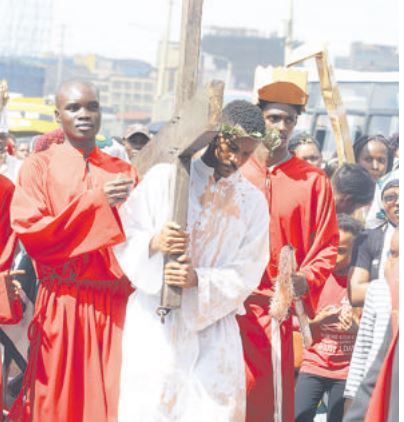×
The Standard e-Paper
Smart Minds Choose Us

Kenyans spent Good Friday, an occasion when Christians all over the world reflect on the death of Jesus Christ, praying for rain and a change in fortunes.
As Botswana author, Bessie Head, would have put it: Christ is the rain God Kenyans are looking for.